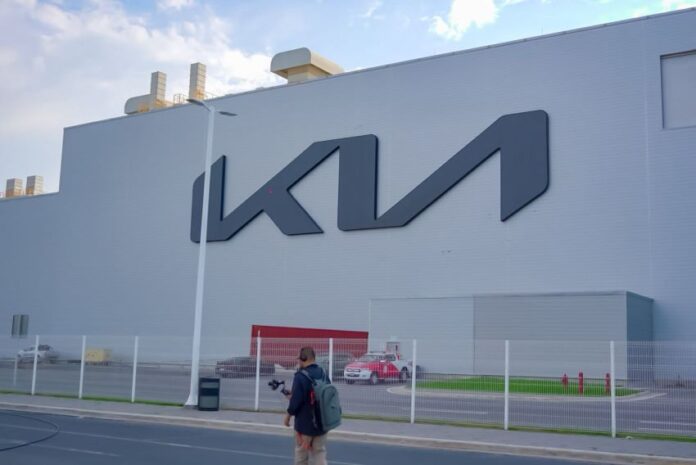South Korean automaker Kia says it will not be deterred by U.S. import tariffs and will maintain its production operations in Mexico.
Horacio Chávez, managing director of Kia México, said the company plans to produce 280,000 of its popular K3 and K4 models at its plant in the state of Nuevo León, while also investing in its training facility.
🚘 KIA fortalece su presencia en #México con inversión de 150 mdd en planta de Nuevo León 👇https://t.co/CXJjzpRw3O
— Abogados Del Consumidor (@consumidoraboga) May 27, 2025
The K4, which is exported from Mexico to 66 countries, including Canada and the U.S., is produced exclusively at Kia’s plant in Pesquería, Nuevo León.. The company invested US $150 million in the plant last year to expand K4 production, which came on the market in March 2024.
“The K4 will comprise 60% of this year’s production,” Chávez said, adding that the company plans to broaden K4 exports but will continue to export to the U.S.
“Despite the trade tensions caused by the U.S. president, Kia will maintain its operations in Mexico,” Chávez told Milenio newspaper. “We recognize that [the Mexican government] is doing everything it can and, it seems to me, is doing it well.”
Chávez acknowledged that it is difficult to project how long the trade uncertainty will last. He admitted that “this could generate certain circumstances, but for the moment there are no changes [in our plans].
According to El Universal newspaper, Kia is paying part of the tariff levied on U.S. imports, but declined to say how much. Chávez said the automaker is analyzing how to increase North American content in its vehicles to reduce tariff impact.
To illustrate this commitment, Chávez said Kia will be expanding its training center “to increase its capacity by 400%.” Kia and its dealers will also spend US $15 million this year to remodel the company’s 100 Mexican dealerships.
Kia also has production facilities in Europe and India, so adjustments could be made if necessary. The North American market remains an important market for Kia, however, and since arriving in Mexico in 2016, the country has been a key part of its global strategy.
With reports from Milenio, El Universal and Telediario
